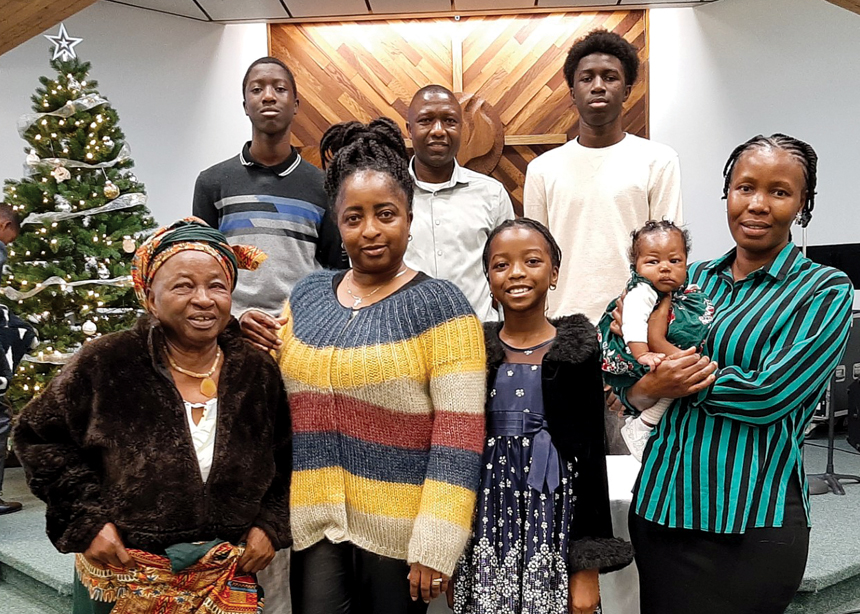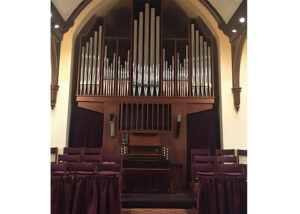Thomas Bumbeh talks about cultural commitment to care for aging parents
Living with extended family under the same roof has made sense to Thomas Bumbeh on several different levels throughout the years.
After arriving in Edmonton from Liberia in 2001, Bumbeh shared a house with three cousins. Now, the 50-year-old realtor and entrepreneur who attends Holyrood Mennonite Church lives with his own family—his wife and three kids—as well as his mother-in-law, his niece and her baby.
“You have somebody around, you have somebody that you could talk to, even though we are living a very busy life,” he said.
Along with the economic benefits—splitting rent and expenses with his cousins 20 years ago allowed them all to save up for houses of their own—Bumbeh said having his mother-in-law and niece around has been good for everyone.
“Years back, when our kids were little, my mother-in-law was a huge benefit helping us. None of our kids went to daycare and both of us had time to work,” he said.
The Canadian standard of nuclear families living in their own houses and moving aging parents into nursing homes is unusual from Bumbeh’s perspective. His mother came to live with his family in Edmonton for two years before returning to Liberia. Back home his siblings took care of her before she passed away in 2019. His older sister was particularly involved, and she now looks back on that time with pride.
Bumbeh said being in long-term care and having people other than family members tending to his mom’s personal care would have “traumatized” her. “She has her own kids who should be doing that.”
Intergenerational living, especially with one’s parents, is rooted in Bumbeh’s culture.
“Our parents live with us until they pass on,” he explained. “They take care of us until it’s time for us to take care of them.”
Bumbeh stressed that long-term care is needed if there are medical situations a family cannot help with, but that seniors living alone can also contribute to increased health issues. Having his niece and her baby in the house keeps his mother-in-law entertained in ways that are more healthy than a TV screen, he said.
That said, Bumbeh recognizes the challenge of living with relatives. He relies on two tools when things get tough: accepting his cultural commitment to take care of aging parents, and communication.
“Even if your parents have issues, or they are very troublesome, you just have to find a way somehow and accommodate them. Because a lot of the time if we have choices then we tend to leverage that,” he said.
Communication has been important when utility bills get high, said Bumbeh.
“Back home we don’t track those things. You can leave the light on and the water running forever. So I sat everybody down and let them know that every drip of water here costs money. You have to pay for it.”
“Once we make sure of how we are going to use [our resources], it benefits us.”
The theme of accommodation is something Bumbeh finds in the Bible, particularly in the stories of Zechariah and Mary and Joseph in Luke, which his Bible study group at Holyrood has been studying.
“They accommodate each other,” he said. “There are other stories in the Bible that talk about how we should accommodate one another, and that will help to build our faith.”
Bumbeh said weekly family devotionals help bring the household together.
“It really strengthens us to be able to manage each other.”









Leave a Reply
You must be logged in to post a comment.